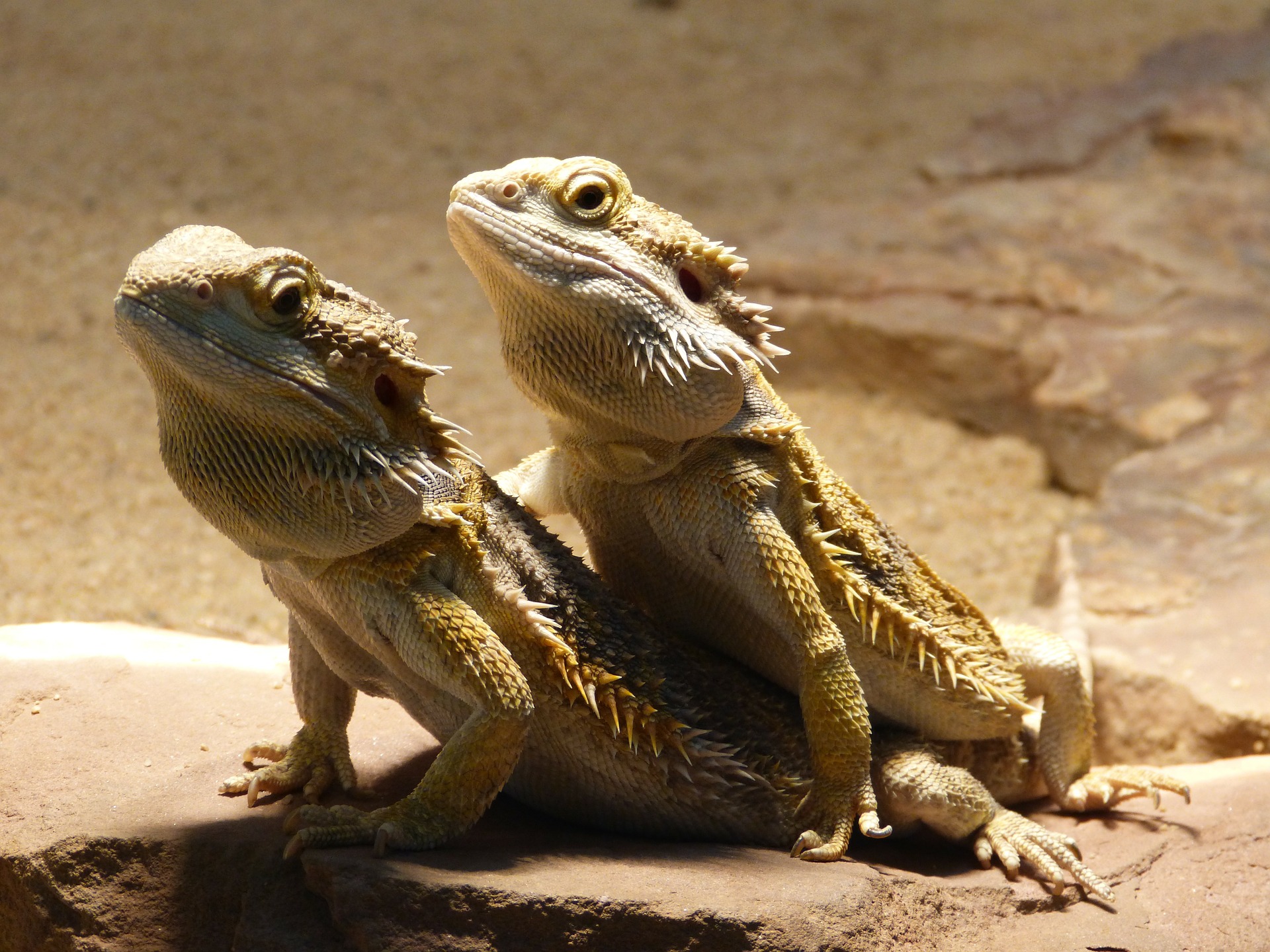Why Cohabitation is Bad

1) Bad Temperament
In the wild, Bearded Dragons are territorial. For example, if two male Bearded Dragons spot each other, chances are high that they will fight in attempt to assert dominance. Meanwhile, if a male Bearded Dragon spots a female Bearded Dragon, it’s likely that the male will attempt to mate with the female. For these reasons, it is difficult to have two Bearded Dragons near each other whether it be two males or one male and one female. Overall, it is safest to not allow two Bearded Dragons the chance of going near each other. Keep in mind, Bearded Dragons can have mood changes extremely fast. At one moment, everything may seem fine. Before you know it, your Bearded Dragons are fighting.
2) Mental Stress
It is important to mention that fighting does not always occur. Actually, fighting is not the only concern with cohabitation. To elaborate, if one Bearded Dragon sees another Bearded Dragon, then either reptile may become stressed out. Of course, stress itself will cause your Bearded Dragon to not behave normally. For example, your reptile may try to escape its enclosure (this is known as glass surfing) or your lizard may simply stop eating. In the end, Bearded Dragons are very fragile mentally and stressful situations should be avoided as much as possible.
3) Lack of Resources
Bearded Dragons can grow up to 24 inches long. As a result, two Bearded Dragons should not be forced to live in a the same tank with each other for a few reasons. For starters, there simply isn’t enough space. For instance, it is crucial for a Bearded Dragon to have a proper basking spot. However, this cannot be achieved if two Bearded Dragons are trying to compete for the same spot (stacking on top of each other). In other words, the Bearded Dragon that is basking on top of the other Bearded Dragon will have the best spot while the Bearded Dragon at the bottom is receiving limited exposure to the heat and UVB bulb. At the same time, they may also be competing for other resources such as catching food. In summary, it would be best to not have Bearded Dragons compete with one another. Chances are, the dominant Bearded Dragon will overpower the weaker one.
4) Unwanted Vet Bills
Considering the fact that Bearded Dragons are territorial, there is a high possibility that they may harm each other (by fighting) which may result in serious injury or death. For obvious reasons, if a Bearded Dragon is seriously harmed in a fight, then you’ll have to go to a vet for treatment. Thus, you may encounter unwanted vet bills or worse (not being able to save your Bearded Dragon). In conclusion, it’s better to be safe than sorry.
5) Potential Offspring
Yet again, if a male Bearded Dragon is paired with a female Bearded Dragon, then it is highly likely that the male will mate with the female Bearded Dragon once the two are of age. Therefore, your female Bearded Dragon will lay multiple clutches of 15-30 eggs. Obviously, having to take care of that many reptiles require a lot of space, time, and money. Consequently, if you are unprepared to take care of an offspring, then the young Bearded Dragons may not have the best quality of life. In short, it is best to be responsible and avoid these scenarios.